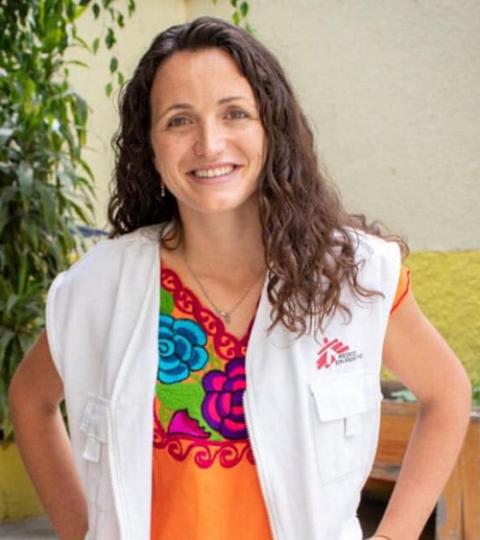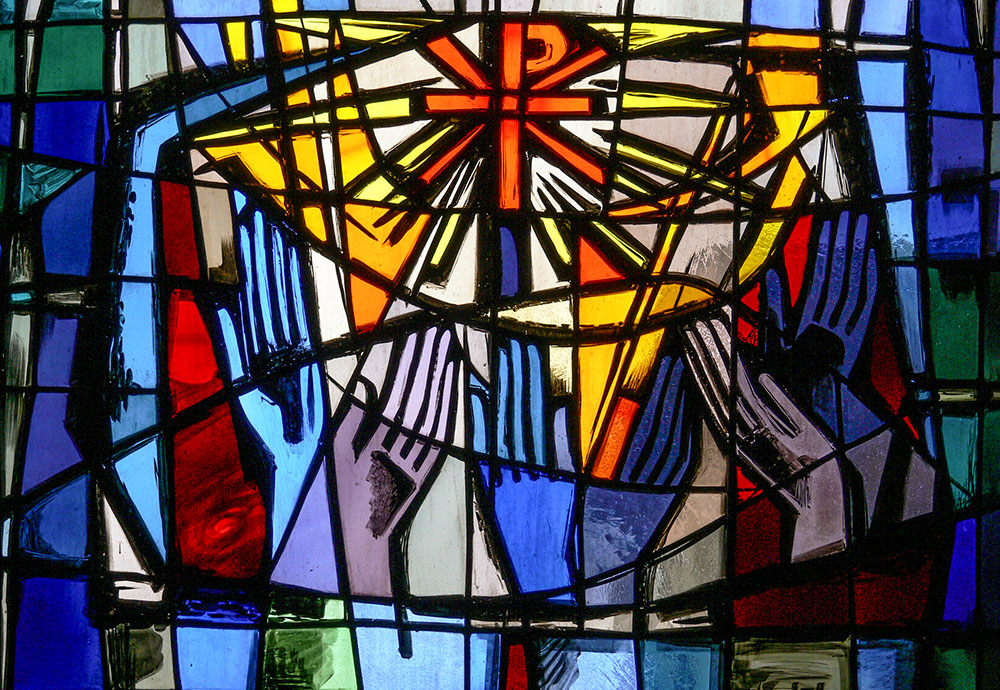
(Dreamstime/Ermell)
Ministry often leads us into moments where we witness others grappling with their own profound callings, even as we face challenges ourselves. Supporting someone as they respond to God's call — especially when it seems daunting — can be both a test and a gift.
This month, we asked our panelists to share their experiences: When have you witnessed others being called by God, particularly when that call seemed difficult?
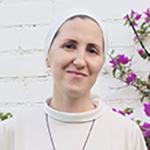
Begoña Costillo is a member of the Order of St. Augustine and lives in the Monastery of the Incarnation in Lima, Peru. She entered religious life in 2012; since then she has lived in Spain, Italy and Peru.
She gave herself completely; like bread, offered and shared.
"I've been assigned to the Central African Republic," María told me. It was the goal that had drawn her for years like a magnet, and now, as I listened to her voice over the phone, I sensed both her excitement and fear. The Central African Republic was in the midst of an internal conflict that had caused many deaths and displaced thousands. The certainty that, in just a few weeks, she would be there, in the middle of a war, filled her with love as much as it thrust her into a whirlwind of anxiety.
A few months earlier, she had secured a position with Doctors Without Borders/Médicins Sans Frontières after years of working as an economist — that was her profession — at various companies. In truth, though, despite accepting those initial jobs, her real desire had always been to be with the poorest. She had known this since her early years, when she began her first volunteer experiences in India.
Soon, she realized it was God's voice calling to her through her brothers and sisters, and so she started a journey of intense searching for God's will.
Now, the fire that burned within her to give herself found a concrete place to ignite and suddenly placed her on African soil. Before leaving for her first mission with Médicins Sans Frontières, María asked me to accompany her in her vocation through prayer and listening, as the experience ahead wasn't going to be easy.
At the time, I had just professed temporary vows, and María was like the other side of my own vocational path. She often visited me at the monastery, and as we spent time together and shared our thirst for meaning, we realized we were both burning with the same love. The radical nature of her life energized mine, and my contemplative choice kept her heart anchored in the Love that pushed her into war zones.
With each mission, María would have to overcome the barrier of her survival instinct, always walking on the edge of death, and resist the temptation to return to a "conventional," safer life. But the light that moved her was always stronger, as she wrote in one of her emails from Nigeria: "Everything speaks of Him, and it's from His Love that we can be little flames, a light in everything we do. I hope to let myself be shaped so that, in His hands, my everyday life can bear witness to His Love."
Her mother told me: 'She gave herself completely; like bread, offered and shared, until nothing was left.' María became Eucharist.
I tried to keep that light alive, giving her wings and staying close to her fears through my prayers, simple offerings of my daily actions, short emails where I reminded her of Christ's word, and listening to her experiences each time she returned from a mission.
And so, little by little, María gave herself to others, reaching the pinnacle of love. It was in the war in Tigray, Ethiopia, in 2021. I spoke with her before she left for her second time there, and a few weeks later, I saw in the news how the conflict had escalated, leading most nongovernmental organizations to evacuate.
I wrote to María, deeply concerned for her, but she didn't have time to respond. A few days later, she was killed, along with two Médicins Sans Frontières colleagues, while rescuing the dying after a bloody attack.
The next day, her mother told me: "She gave herself completely; like bread, offered and shared, until nothing was left." María became Eucharist. Since then, my vocation has followed the path she blazed, longing to be consumed by Love as she was, and to journey with her in that same love.
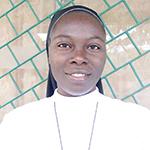
Pouiwindin Chantal Ouedraogo, a Dominican Sister of the Presentation, is from Burkina Faso. She holds a bachelor's degree in philosophy and letters and a teaching certificate. She has 10 years' experience teaching in primary schools, the majority spent teaching in Burkina Faso. In 2022, she was missioned to Cameroon, and for the past year, she has taught primary school in Mokolo, in the far north region of Cameroon. She also has been involved in pastoral activities that support young people.
Arsène Kagone, born Sept. 6, 1971, in northern Burkina Faso, is the third child in a Christian family of 13 siblings. He completed his education without sensing a call to a specific vocation.
However, in 2001, while working for a hydraulic drilling company, Arsène became increasingly aware of the suffering around him. He began offering comfort where he could, and although the problems remained, people spoke of an inner peace that he understood to be the work of the Holy Spirit.
A verse from Revelation 3:20 resonated with him: "Here I am! I stand at the door and knock." Arsène saw Christ as the Servant offering a heavenly meal of peace, and he felt called to become a servant of the Servant Christ to make him known to the multitude and thus contribute to the flourishing of humanity.
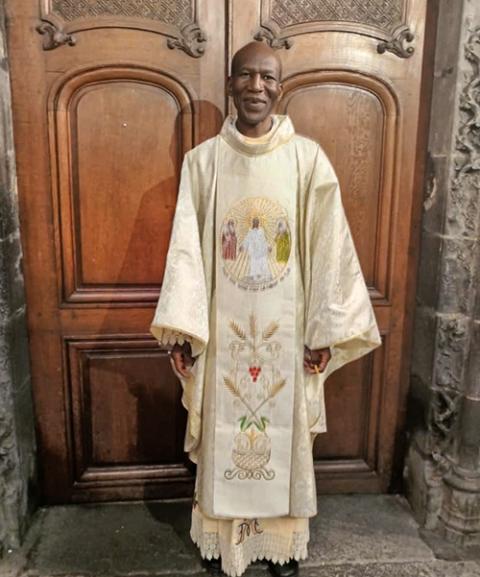
Fr. Arsène Kagone was ordained a priest on June 23 at the age of 54. (Courtesy of Chantal Oueadraogo)
When his desire to dedicate his life to God's service matured, he resigned in 2004 from his drilling job to study philosophy at the University of Ouagadougou, earning a degree in 2007.
Immersed in the spirituality of eucharistic life, he co-founded a group in 2010 to help make Christ present through the lives of believers. Arsène wished to follow Christ more closely through the priesthood, but he was ineligible for seminary because the age limit was 30, and he was 33.
After resigning, Arsène supported himself by crafting and selling religious items like rosaries and crosses. A generous couple later offered to help fund his theological studies. In 2017, he enrolled at the Catholic Institute of Lille in France, working part time to cover living expenses by washing windows and organizing games with schoolchildren during their lunch break.
In 2018, during a visit to Clermont-Ferrand, Arsène met Fr. Alain Croze, who introduced him to Fr. Paul Destable, head of priestly formation in the Clermont Diocese. Two years later, in 2020, the archbishop of Clermont invited Arsène to continue his vocational journey.
Arsène transferred to the Catholic University of Lyon to be closer to Clermont-Ferrand, where he completed a canonical bachelor's degree in theology. In 2021, he was accepted for vocational discernment at Our Lady of Hope Seminary in Orléans.
Arsène was ordained a priest on June 23, 2024, at the age of 54.
At first glance, Arsène's vocation to the priesthood seemed impossible. Yet, though his path to the priesthood faced many obstacles, Arsène's story shows how God opens the way and provides the means to fulfill his will when we are attentive, listen to him and surrender to the Holy Spirit's guidance.
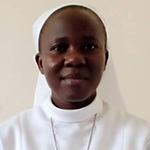
Maureen Ojil is a professed member of the Franciscan Sisters of St. Anne, a dedicated Kenyan working at the Archdiocese of Nairobi Secretariat as an associate administrative assistant in the office for Institutes of Consecrated Life and Societies of Apostolic Life. She earned a bachelor's degree in education and a licentiate degree in canon law. Her passion lies in serving the people of God. She is involved with the Missionary Youth Movement at Our Lady of the Rosary Catholic Church, where she is committed to community service.
Sister Sharon Clare grew up in the tranquil village of Nduru, the beloved daughter of Mzee Atinda, a renowned and respected man in the community. From a young age, Sharon felt a gentle tug toward religious life. As she navigated her early years, she struggled to articulate this calling, remaining unsure of what it truly meant. However, as she matured, she began to understand her deepest desire: to join religious life and serve God.
With a heart full of hope, Sharon shared her aspirations with her parents, brimming with excitement and anticipation.
However, she was unprepared for her father's response. Mzee Atinda, who held traditional African values in high regard, completely rejected the idea. To him, raising a daughter meant preparing her for marriage and motherhood.
Advertisement
His rejection deeply pierced Sharon's heart. The man she loved and admired did not support her dreams, leaving her grappling with conflicting emotions of love and disappointment.
During her formation, Sharon faced ongoing struggles, troubled by her father's opposition. She sought solace in the stories of classmates who encountered similar challenges. One of her formators shared examples of sisters who also faced familial resistance yet ultimately chose to honor God's call.
These stories ignited a spark of hope within Sharon. "I chose to persevere despite the guilt I felt for not honoring my father and for following my vocation," she reflected.
Sister Sharon acknowledged that her journey was not as smooth as she initially thought. "However, God's grace proved sufficient," she said.
As the time for her first profession approached, she was engulfed by fear of the unknown. Would her father accept her decision or disown her for defying his wishes? Despite the uncertainty, she took a leap of faith and proceeded to take her first vows, firmly believing in her calling.
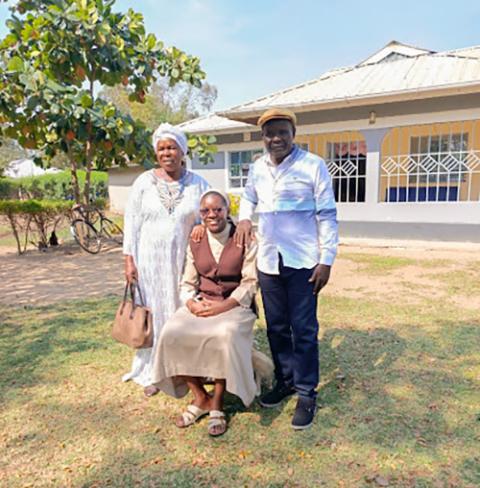
Sr. Sharon Clare Atinda visits her parents. (Courtesy of Maureen Ojil)
Though her father agreed to attend the ceremony, she still lacked a sense of inner peace in his presence. After her first profession, she felt a whirlwind of emotions as she prepared to return home as a sister. Facing her father — a man who had not embraced her choice — filled her with apprehension.
To her astonishment, upon her arrival, Mzee Atinda greeted her with joy and celebration, showering her with love. The transformation was profound; the same father who once rejected her choice of life became proud to call her Sister Sharon, a title that resonated warmly within the community.
"Sometimes, I still feel like I'm dreaming," Sharon confessed, bewildered by her father's change of heart.
She could not comprehend what had shifted within him, yet the embrace of acceptance filled her spirit with peace. This experience deepened her understanding of God's will, affirming her belief that nothing can come between God and the plans he has for his people.
Sister Sharon hopes her story inspires those who feel rejected or discouraged by a lack of support. She wants others to know that perseverance in faith can lead to miraculous transformations and the fulfillment of one's divine calling.
"May God guide you and grant you the grace of holy perseverance," she encourages, knowing that every struggle builds a stronger foundation for a life of purpose and service.
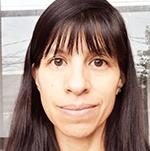
Nancy Mancera is a Colombian missionary with the Verbum Dei Missionary Fraternity. She studied theology in Guadalajara, Mexico, and earned a degree in dogmatic theology from the Gregorian University in Rome. She has been involved in apostolic work in countries that include Mexico, Colombia, Belgium, Italy and Guatemala, serving diverse populations from children to adults. She has also established radio programs at the diocesan level to support apostolic group formation and conducted retreats for teenagers and university students. She currently lives in Guatemala.
In my missionary journey, I've met many people who've taught me countless nuances of what the phrase "God's call" really means. Approaching these stories has been both a challenge and a great responsibility for me.
One of those stories is about Laura, a 19-year-old girl who showed up at my door one morning. She was the daughter of a judge who had sent a man to prison for his crimes. The man had threatened the judge, saying, "You'll regret this," but she hadn't taken it seriously. Months later, while Laura was out with her best friend, someone had approached them. Both girls were drugged with scopolamine, taken away and assaulted. It was a horrifying ordeal.
When Laura came to my house, she had just found out she was pregnant as a result of the assault. Her mother was pressuring her to have an abortion, which was allowed by law in such cases. Laura was torn apart by conflicting emotions.
The only person supporting her decision to keep the baby was her grandfather, who lived in another city and was willing to take her in. But to join him, she'd have to run away from home.
Sometimes, accompanying others means simply shining a small light to help them see they're already on the right path.
She was confused — unsure of what to do. On one hand, she didn't want to harm the baby, but on the other hand, she didn't want the pregnancy. And yet, something deep inside was urging her to protect that life.
That morning, all we could do was sit with the mystery and miracle of life. We reflected on God's presence — how God loves each of us and never abandons us. I could see how God was calling Laura from within to do the right thing, even though she was afraid and confused.
Even in the darkness she was facing, God's presence was clear — through her grandfather's support, and through the instinct that brought her to knock on the door of missionaries she didn't even know, seeking some kind of guidance.
We talked for a long time. And although I never saw Laura again, I felt at peace, knowing she had decided to leave that night for her grandfather's city, ready to face the next stage of her life.
I've come to understand that, sometimes, accompanying others means simply shining a small light to help them see they're already on the right path. All they need is the courage to listen to that inner voice, even when the world around them feels completely dark.
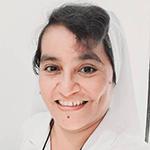
Ruth Karina Ubillus, a member of the Congregation of the School Sisters of Notre Dame, was born in Peru. With 12 years of teaching experience in public schools, she joined the congregation in 2006 after her novitiate in Brazil, where her missionary calling began. During her journey, she discovered the significance of "inner child" work in Guatemala, emphasizing its crucial role in personal growth and development. She holds a diploma in spiritual direction. She previously lived in Brazil for four years and since 2020 has lived in South Sudan, where she is driven to help individuals in their journey of personal growth and development.
As consecrated men and women, we are never without challenges, inner struggles, and doubts. These are all part of the human experience and the long interior process we must go through to become authentic witnesses of God's gratuitous love. To those who feel the road is difficult, I affirm that it is through challenges that I have matured in my personal and spiritual growth.
The first thing Jesus has taught me is to let go of fear and not run away from difficulties. If we flee, we miss opportunities for renewal and personal transformation.
"God's call is a gift and a responsibility. Because He loved us first, we respond with love, freely choosing to follow Christ." These words from our School Sisters of Notre Dame constitution help me live my vocation each day.
In difficult times, it is essential to ask: Is there something I should learn about myself and others through this experience? What is God, the community, or the situation asking of me?
The call, first and foremost, is an invitation to a deep, unique and constant relationship with God. This first love is the foundation of my call, my vocation and my daily commitment. It is the greatest truth that sustains me, especially in difficult moments. Nothing and no one can take me away from this genuine love that is always present.
Vocation is freedom, joy and fulfillment, but it is also a path filled with challenges and suffering, where we can experience God the most. Reflecting on my journey, I feel deep gratitude for the challenges and crises that have given me inner freedom and helped me mature in my faith. God is a great teacher, who, through challenges, leads us to profound personal and communal transformation.
In difficult times, it is essential to ask: Is there something I should learn about myself and others through this experience? What is God, the community, or the situation asking of me? We never know our full potential until we face challenges.
An apostolate lived in genuine love of God and authentic faith, tested through challenges, is the sign others expect to see. An authentic consecrated life is expressed in the joy of following Christ to the end. As Isaiah 40:31 says: "Those who hope in the Lord will renew their strength. They will soar on wings like eagles; they will run and not grow weary; they will walk and not be faint."

